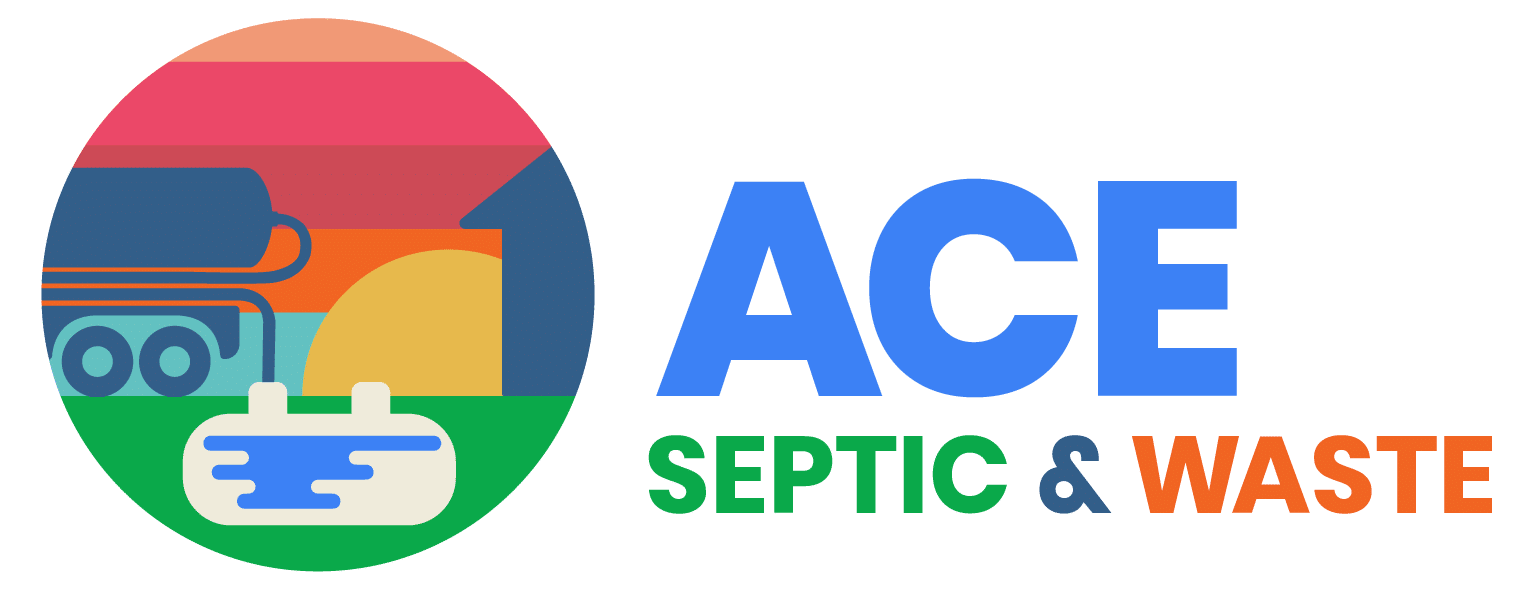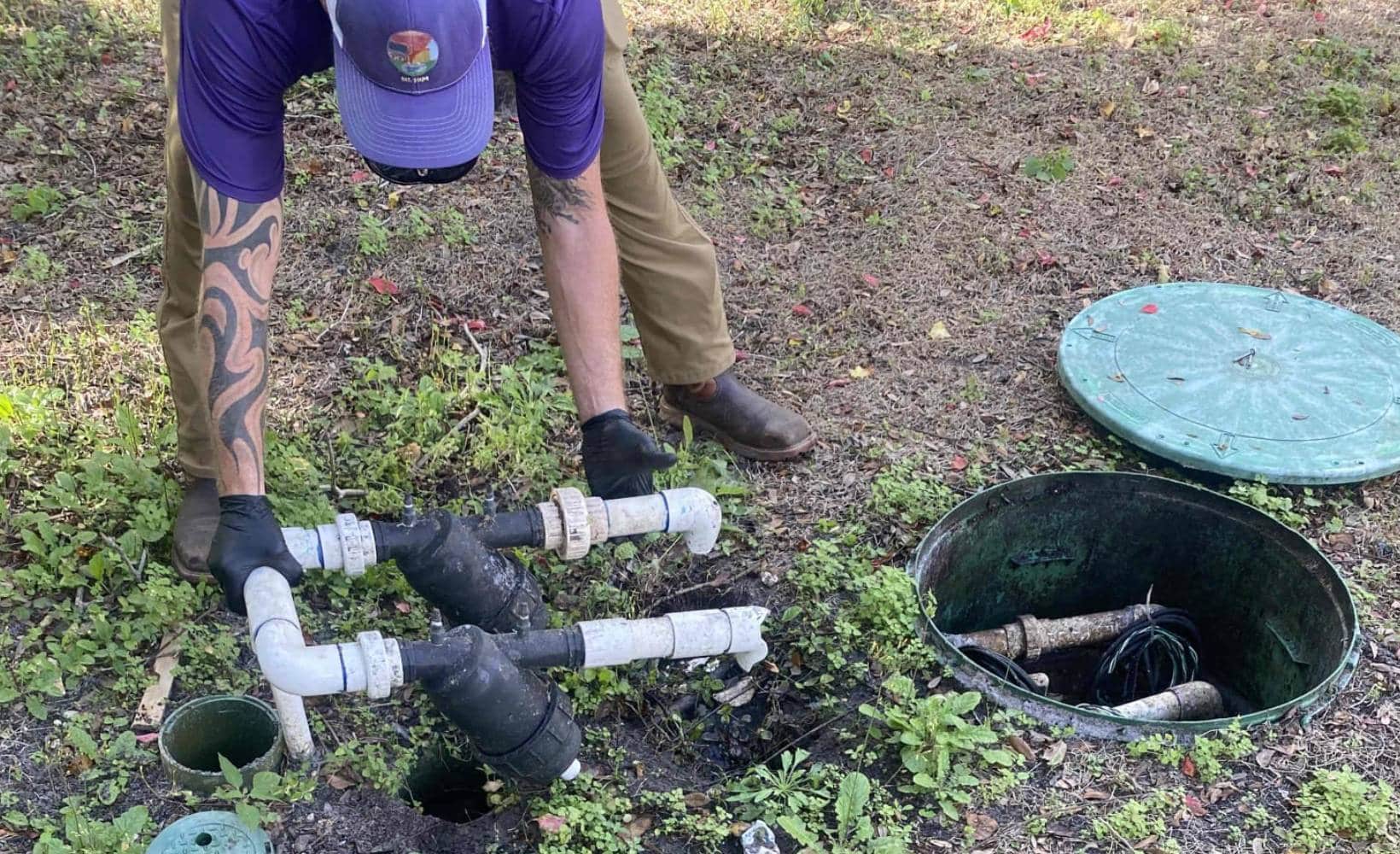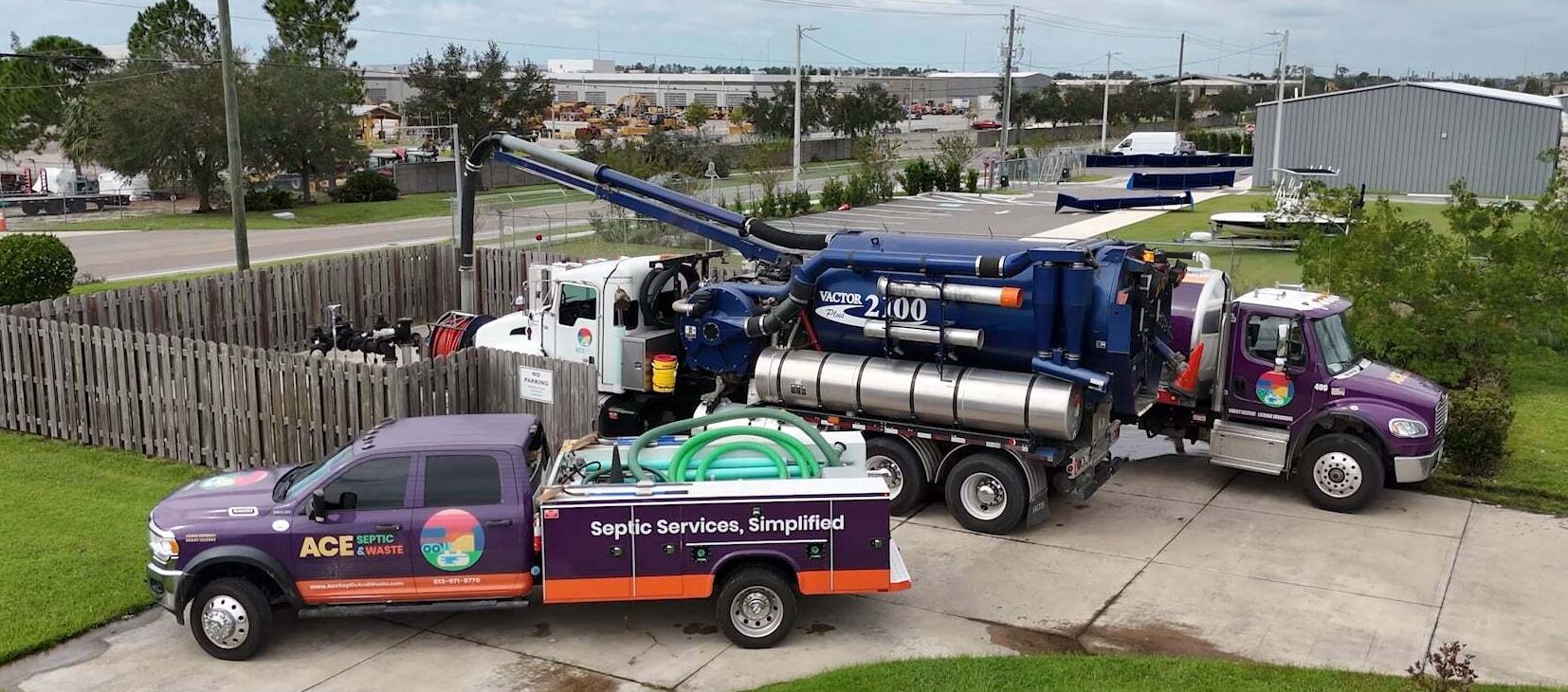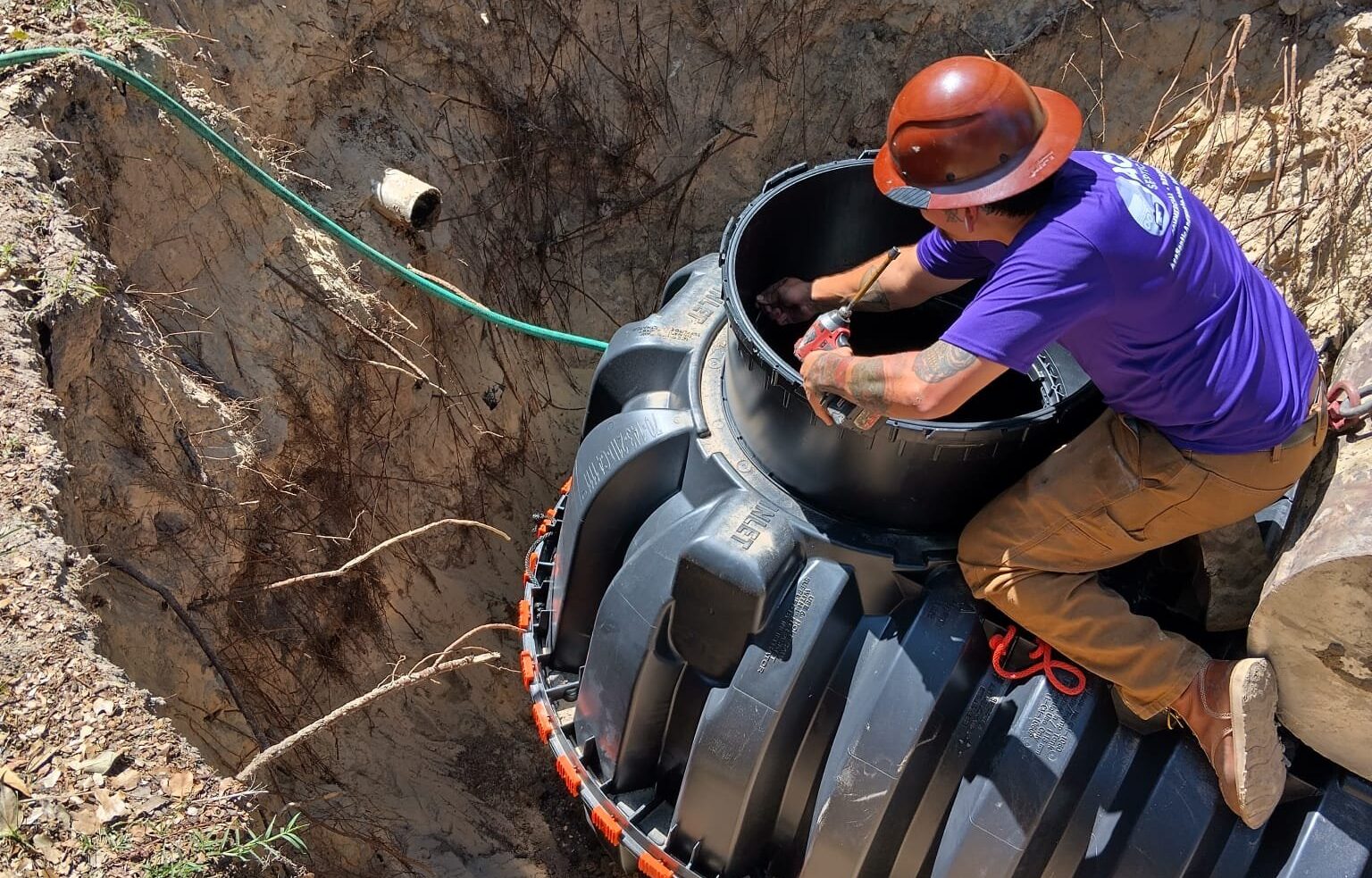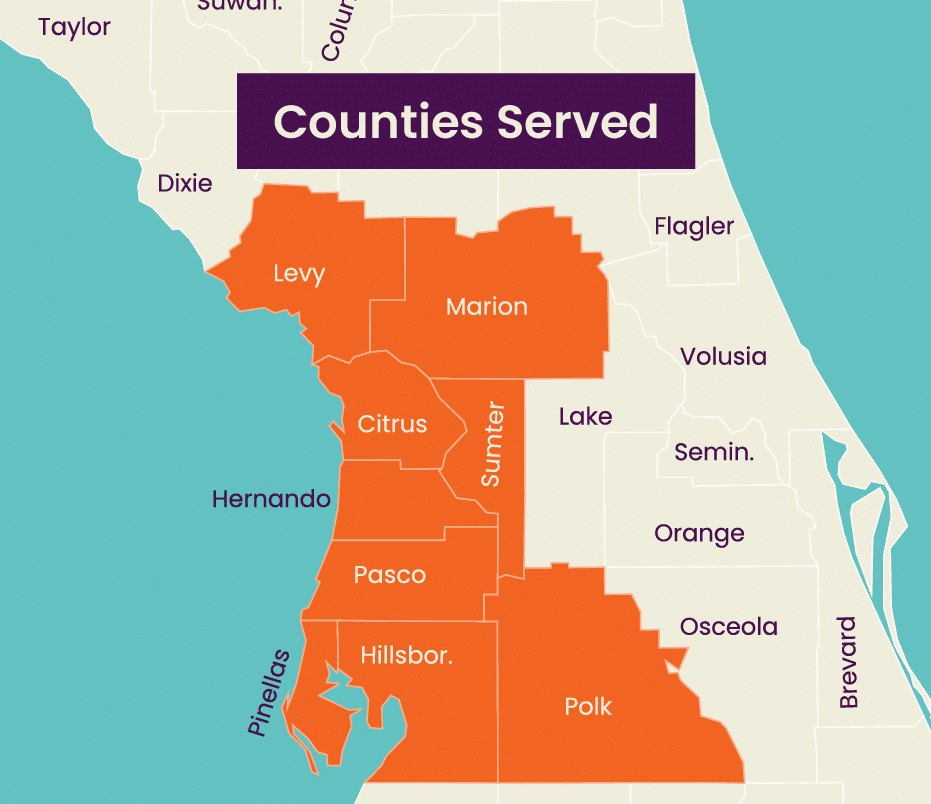When deciding between a septic system or connecting to a sewer system, homeowners need to weigh key factors such as cost, environmental impact, and maintenance. Both systems effectively manage wastewater but operate in distinct ways and offer unique benefits and drawbacks.
In Florida, recent legislative measures like the Springs and Aquifer Protection Act are prompting certain counties to transition from traditional septic systems to centralized sewer systems to protect water quality and public health. While this transition will be challenging for many homeowners, Florida leadership is exploring state grants and other funding opportunities to assist residents with the costs associated with these upgrades. These efforts reflect Florida’s commitment to safeguarding its water resources through improved wastewater management practices.
How Septic Systems Work
A septic system is an independent wastewater treatment system typically installed for homes in rural or less densely populated areas. Wastewater flows into a septic tank, where solids settle to the bottom, forming sludge, and oils float to the top as scum. The effluent, or treated water, then exits into a drainfield where soil filters out remaining impurities and the water returns to the aquifer.
Benefits of Septic Systems
- Independence: Septic systems are self-contained, making them ideal for properties in areas without centralized sewer infrastructure.
- Lower Monthly Costs: Unlike sewer systems, septic systems do not involve monthly utility fees.
- Eco-Friendly: Properly maintained systems treat wastewater on-site, reducing the need for large-scale water treatment facilities.
Drawbacks of Septic Systems
- Maintenance Requirements: Regular pumping and inspections are essential to avoid backups or failures.
- Installation Costs: Initial installation can be expensive, particularly for larger properties or those requiring advanced systems due to soil or water table conditions.
- Limited Longevity: Drainfields may need to be replaced after decades of use, which can be a significant expense.
How Sewer Systems Work
Sewer systems are centralized wastewater collection networks managed by local municipalities. Wastewater flows from homes into a network of pipes leading to a treatment facility where it is processed and safely released into the environment.
Benefits of Sewer Systems
- Low Maintenance for Homeowners: Maintenance is handled by the utility provider, sparing homeowners the responsibility.
- Reliable for High-Density Areas: Sewer systems are designed to handle large volumes of wastewater, making them suitable for urban and suburban neighborhoods.
- Eliminates Groundwater Contamination Risk: Centralized treatment reduces the likelihood of untreated waste seeping into local groundwater.
Drawbacks of Sewer Systems
- Monthly Fees: Sewer systems involve ongoing utility bills, which can add up over time.
- Lack of Control: Homeowners are dependent on municipal systems, which can face issues like overflows during storms or infrastructure failures.
Florida’s Push for Septic-to-Sewer Conversions
In many Florida counties, including those in the Tampa Bay area, efforts are underway to transition properties from septic systems to centralized sewer systems. The state aims to mitigate environmental concerns associated with older septic systems, particularly nitrogen pollution, which contributes to harmful algal blooms in water bodies like Tampa Bay and our many lakes.
Hillsborough County Initiatives
Hillsborough County has launched a Septic-to-Sewer (S2S) and Low-Pressure Sewer System (LPSS) Conversion Program to replace septic systems in targeted areas, including the University Area community. This initiative is designed to protect groundwater and improve local water quality, addressing environmental concerns specific to the region.
Impact on Homeowners
Property owners may qualify through these programs for cost-free conversions, with the county managing much of the process. However, homeowners must still cover costs for connecting their property to the sewer system and decommissioning existing septic tanks according to state requirements.
Through promoting these initiatives, Florida hopes to safeguard its water resources while modernizing wastewater infrastructure in areas vulnerable to pollution.
Making the Right Choice
Choosing between a septic or sewer system largely depends on location, property type, and budget. Homeowners in rural areas may find septic systems more practical, while those in urban regions may benefit from the reliability of a sewer connection. Additionally, many septic system owners impacted by the legislative changes will need to plan ahead and begin transitioning to a sewer connection or to a more environmentally friendly Aerobic Treatment Unit (ATU) system.
At ACE Septic & Waste, we specialize in septic system installations, maintenance, and repairs, helping homeowners keep their systems in optimal condition. If you’re navigating a septic-to-sewer conversion, we can assist with decommissioning your old system and preparing for a seamless transition. ACE has also launched our own Clean Water Initiative to help educate Floridians about the upcoming changes and our commitment to protecting Florida’s natural resources.
Both septic and sewer systems have their advantages and drawbacks. Understanding your property’s needs and local regulations is key to making an informed decision. For expert advice and services, trust ACE Septic & Waste to guide you every step of the way. Contact us today to learn more about your options and how we can help.
